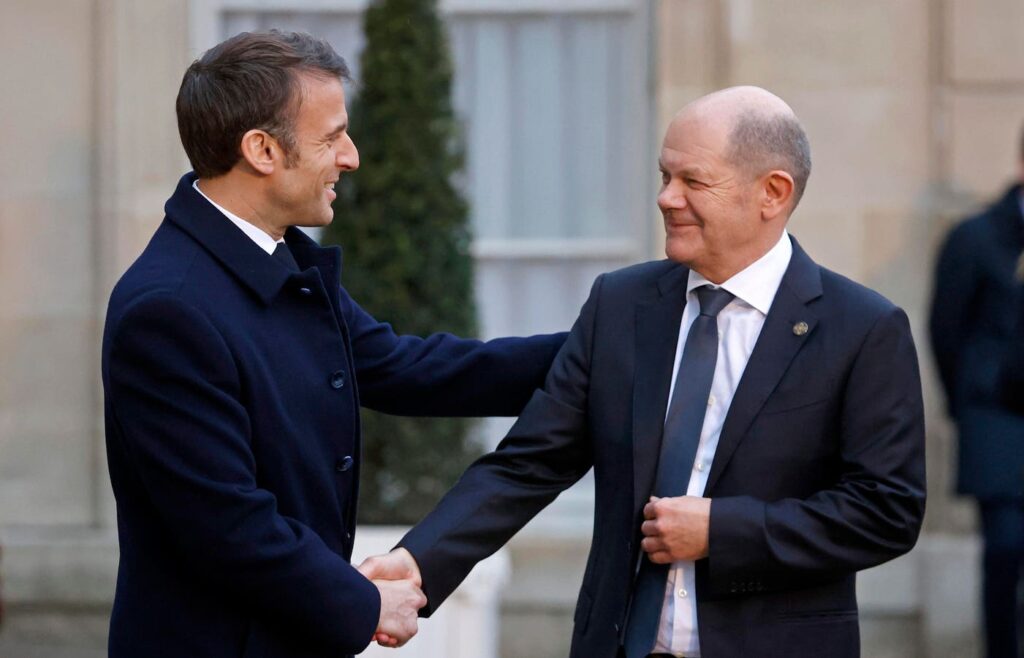The last time that Xi Jinping visited France (2019) Emmanuel Macron presented him with a 1688 copy of ‘An Introduction of The Analects of Confucius’. Xi is back in Paris this weekend, his fourth visit, placing France alongside Kazakhstan and South Africa as Xi’s favourite destinations after the US (five visits) and Russia (nine).
As such, the question on my mind is what book Macron should give him this time?
He might start with something on Germany, notably Fritz Stern’s ‘Gold and Iron’ to remind us of what a strong chancellor sounds like (Bismark coined the notion of ‘blood and iron’) and indeed to highlight the link between capital and diplomacy. This is relevant because the first dilemma for Macron is how to steer Olaf Scholz toward a tougher political view on China, given that the German economy remains heavily dependent on China. Macron and Scholz had dinner together (spouses included) in Paris on Thursday.
We don’t know what was discussed – the installation of Mario Draghi as a replacement for Ursula von der Leyen, and Germany paying France to broaden its nuclear deterrent to an EU level – are two possibilities. China’s stance towards Ukraine, its deepening alliance with Russia and the ‘dumping’ of Chinese electric vehicles are topics that were most certainly broached. The mystery is Scholz’ insistence on continuing with a visit to the Baltic states on Monday (6th May) when he could have accompanied von der Leyen and Macron to greet Xi. It might be that Germany just wants to keep its ‘special’ relationship with China to itself.
Macron might reflect that at least by having von der Leyen there, the case will be made to Xi that visiting Hungary and Serbia, two ‘bad’ actors, at the same time as France is very bad diplomacy by China. It shows that either China is very far away from a cultivated form of soft power, or that it is now so committed to its relationship with Russia that it cares less about what Europe thinks of it.
At the same time, China has lost Italy as a member of the Belt and Road group, and most of the Baltic and Eastern European states regard it with deep suspicion. Macron should dig out a copy of ‘White Eagles over Serbia’ by Lawrence Durrell to make the point that any influence operations out of Serbia will be contested.
If he is feeling imperial (often), Macron might offer Xi a copy of Claude Martin’s ‘La Diplomatie n’est pas un dîner de gala – mémoires d’un ambassadeur’, all 946 pages of which are a reminder of the grandeur of French diplomacy, China’s humble origins and of course how far it has come, spurring demand for French handbags. I should say that, nice caricature as it is, handbags don’t make it into the top ten of French exports to China.
In that respect the substance of the Xi visit will likely be about the ways in which Europe will derisk but not decouple its trade relationship with China. At this point, I suspect that from the point of view of sensitive technologies, much of the de-risking has happened, and that EU-China trade relations are bottoming out (I expect little warmth at the diplomatic level). Both regions will for the time being regard each other as a ‘hedge’ should Donald Trump be re-elected in November and restart a series of trade disputes. Europe does not see China as a close or natural ally, but it may also be useful to preserve civil relations with it lest American politics takes a wrong turn.
To return to the question I mentioned at the top of the note, perhaps the book should be on economics, specifically asset price bubbles and speculation, an original 1841 version of Charles MacKay’s Popular Delusions and the Madness of Crowds’. An even better idea might be some of the original pamphlets (I know where to find them) relating to the scheme of John Law, the Scotsman who blew up the French economy in 1720. It is a tale of financial engineering that few countries have surpassed, with perhaps, the exception of China.
Read the full article here


